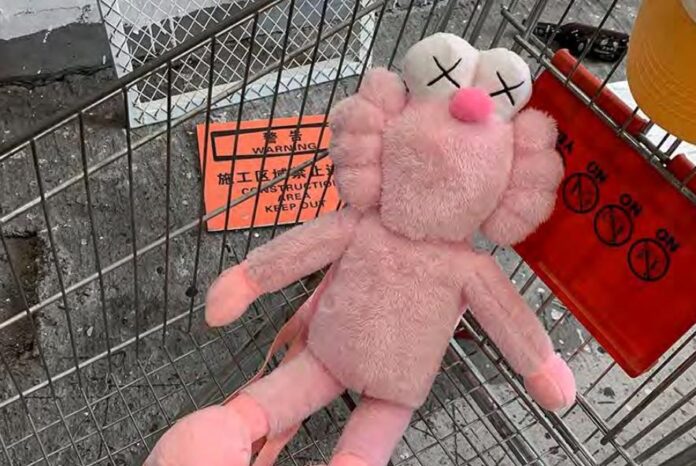Brian Donnelly, better known as KAWS, was awarded $900,000 in damages this week by a court in New York after the artist filed a lawsuit in 2021 accusing a man in Singapore of reproducing KAWS’s works on hundreds of goods with a collective retail value of more than $63m.
The US Southern District Court of New York ordered Dylan Joy An Leong Yi Zhi and two Singaporean companies associated with him to stop producing the counterfeit goods featuring KAWS’s well-known Companion character, which is depicted in much of his work. The $900,000 awarded to KAWS is meant to offset “the effect that [Leong’s] counterfeiting has upon the market for plaintiffs’ goods, including the dilution of the products’ distinctiveness and disruption in the market for KAWS goods”, according to the ruling.
David Arkin, KAWS’s project assistant, said in court documents that Leong’s goods were priced at between $59 and $3,299, and that the total retail price of all 154 fake KAWS items reached more than $63m. Leong was selling plush dolls, vinyl figurines, ashtrays, skateboards, canvases, posters, sculptures, rugs and neon lights, according to the ruling. Authentic work by KAWS can sell for millions —- his auction record was set in 2019 when Sotheby’s Hong Kong sold The KAWS Album (2005) for $14.8 million (including fees).
According to court documents, one of the companies’ websites stated the goods for sale were ”custom hand-reworked reproductions due to the low prices we are able to provide”. According to the ruling, that was enough evidence to demonstrate Leong “knowingly intended to sell counterfeit KAWS goods”.
KAWS’s team submitted evidence of 154 products created by Leong they claimed infringed on the artist’s copyright, according to the ruling. KAWS said the sale of knockoffs of his work “damages his reputation among the buying public and art aficionados,” and can even “chill the market for his original work because purchasers fear inadvertently acquiring a counterfeit”, according to the ruling. KAWS spends more than $40,000 annually identifying counterfeits and issuing takedown notices, he said.
KAWS filed the lawsuit against Leong in 2021, but noted in court documents that his team first sent over cease-and-desist letters and takedown notices the previous year. Aaron Richard Golub, a lawyer for KAWS, told Artnet News the artist will next seek a judgement against Jonathan Anand, another defendant in the case. Representatives for KAWS declined to comment, and Leong’s lawyer did not immediately respond to The Art Newspaper’s requests for comment.

























